Films with theme "Films about Jews and Judaism", sorted by revenue

The Eternal Jew (1940)
, 1h2Directed by Fritz Hippler
Genres Documentary, Historical
Themes Politique, Films about religion, Political films, Films about Jews and Judaism
Actors Charlie Chaplin, Harry Giese, Curt Bois, Fritz Kortner, Peter Lorre, Ernst Lubitsch
Le Juif éternel est une contribution à l’idéologie nazie. Il dépeint l’idée d’un complot international ourdi par les Juifs de l’Est (de nombreuses scènes ont été tournées en Pologne) et les Juifs de l’Ouest, dans la tradition des Protocoles des Sages de Sion. Il met tout en œuvre pour dépeindre les Juifs comme des sous-hommes et a pour but de montrer qu’ils sont un peuple auquel il faut s’opposer, dénonçant leur façon de vivre, leur histoire, leurs coutumes… Ainsi, le documentaire prétend dévoiler les véritables traits du « Juif éternel », d’après les nazis.

The Life of Emile Zola (1937)
, 1h56Directed by William Dieterle, Irving Rapper
Origin USA
Genres Drama, Biography, Comedy-drama, Historical
Themes Films about writers, Spy films, Seafaring films, Prison films, Films about racism, Films about religion, Transport films, Films about capital punishment, Films about Jews and Judaism
Actors Paul Muni, Gloria Holden, Gale Sondergaard, Joseph Schildkraut, Donald Crisp, Henry O'Neill
Set in the mid through late 19th century, it depicts Zola's friendship with Post-Impressionist painter Paul Cézanne, and his rise to fame through his prolific writing, with particular focus on his involvement late in life in the Dreyfus affair.

Mr. Skeffington (1944)
, 2h25Directed by Vincent Sherman, Irving Rapper
Origin USA
Genres Drama, Romantic drama, Romance
Themes Films about religion, Films about Jews and Judaism
Actors Bette Davis, Claude Rains, Walter Abel, George Coulouris, Richard Waring, John Alexander
In 1914, spoiled Fanny Trellis (Bette Davis) is a renowned beauty, with many suitors. She loves her brother Trippy (Richard Waring) and would do anything to help him. When Fanny learns that Trippy has embezzled money from his stockbroker employer Job Skeffington (Claude Rains), she marries the lovestruck businessman in order to save her brother. Disgusted by the arrangement, in part because of his prejudice against Skeffington being Jewish, Trippy leaves home to fight in the Lafayette Escadrille in World War I.
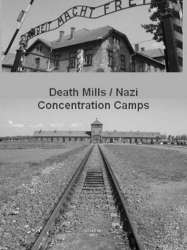
Death Mills (1945)
, 22minutesDirected by Billy Wilder
Origin USA
Genres War, Documentary
Themes Films about racism, Films about religion, Documentary films about racism, Documentary films about law, Documentary films about war, Documentary films about historical events, Documentaire sur une personnalité, Documentary films about religion, Political films, Films about Jews and Judaism, Documentary films about World War II
The film opens with a note that the following is "a reminder that behind the curtain of Nazi pageants and parades was millions of men, women and children who were tortured to death - the greatest mass murder in human history," then fades into German civilians at Gardelegen carrying crosses to the local concentration camp.

The Trial (1948)
, 1h48Directed by Georg Wilhelm Pabst
Origin Austria
Genres Drama, Historical
Themes Films about racism, Films about religion, Films about Jews and Judaism
Actors Ernst Deutsch, Ewald Balser, Josef Meinrad, Marianne Schönauer, Gustav Diessl, Maria Eis
Hongrie en 1882. Dans un village, Esther, une servante adolescente, disparaît. Personne ne sait qu'elle s'est enfuie parce que sa maîtresse la maltraite. La rumeur accuse bientôt les Juifs de sa disparition, qu'elle aurait été la victime d'un assassinat rituel. Un témoin affirme avoir vu Esther se réfugier chez le chef de la communauté juive, Peczely Scharf. C'était le jour de shabbat, où tout geste non religieux est interdit, or la fille chrétienne a pris un chandelier sur la table. Depuis, personne ne l'a revue.

The Merchant of Venice (1953)
, 1h42Directed by Pierre Billon, Giorgio Capitani, Pierre Billon
Origin France
Genres Drama
Themes Films about religion, Théâtre, Films about Jews and Judaism, Films based on plays, Films based on works by William Shakespeare
Actors Michel Simon, Andrée Debar, Massimo Serato, Armando Francioli, Liliana Tellini, Olga Solbelli
Afin de venir en aide à son ami Bassanio, le riche marchand Antonio, en attendant l'arrivée prochaine de ses navires, est obligé de demander à l'usurier Shylock de lui avancer une somme d'argent. Celui-ci accepte, à la condition que, si le prêt n'est pas rendu dans les délais voulus, il se paiera en prélevant une livre de chair sur son créancier…

The Sorrow and the Pity (1971)
, 4h11Directed by Marcel Ophuls
Origin France
Genres War, Documentary, Historical
Themes French war films, Films about racism, Films about religion, Documentary films about racism, Documentary films about law, Documentary films about war, Documentary films about historical events, Documentary films about religion, Political films, Films about Jews and Judaism, Documentary films about World War II, Histoire de France, L'Occupation allemande en France
Actors Christian de La Mazière, Maurice Chevalier, Marcel Ophuls, Junie Astor, Danielle Darrieux, Suzy Delair
Part One of the film, The Collapse, has an extended interview with Pierre Mendès France. He was jailed by the Vichy government on charges of desertion, but escaped from jail to join Charles de Gaulle's forces operating out of England, and later served as Prime Minister of liberated France.
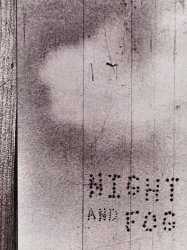
Night and Fog (1959)
, 32minutesDirected by Alain Resnais
Origin France
Genres War, Documentary, Historical
Themes Films about racism, Films about religion, Documentary films about racism, Documentary films about law, Documentary films about war, Documentary films about historical events, Documentaire sur une personnalité, Documentary films about religion, Political films, Films about Jews and Judaism, Documentary films about World War II
Actors Michel Bouquet
Night and Fog is a documentary that alternates between past and present and features both black-and-white and color footage. The first part of Night and Fog shows remnants of Auschwitz while the narrator Michel Bouquet describes the rise of Nazi ideology. The film continues with comparisons of the life of the Schutzstaffel to the starving prisoners in the camps. Bouquet then addresses the sadism inflicted upon the doomed inmates, including torture, scientific and medical "experiments", executions, and prostitution. The next section is shown completely in black-and-white, and depicts images of gas chambers and piles of bodies. The final topic of the film depicts the liberation of the country, the discovery of the horror of the camps, and the questioning of who was responsible for them.

Yahudi (1958)
, 2h50Directed by Bimal Roy
Origin Inde
Genres Drama, Action, Peplum, Romance
Themes Films set in Africa, Films about religion, Political films, Films about Jews and Judaism, Films based on plays, Films about royalty
Actors Dilip Kumar, Meena Kumari, Sohrab Merwanji Modi, Nazir Hussain, Nigar Sultana, Helen Khan
Ezra (Sohrab Modi) is a jeweller who has a son called Elijah. He also has a friendly butler/child minder called Emmanuel. In the beginning, Ezra is due to leave. As he does, Elijah becomes upset and stands at the balcony. In the roads of the Jewish area, Brutus (Nazir Hussain), Governor of Rome, is passing, making an announcement. Watching over the balcony, is Elijah. A stone slips from his hand and hits Brutus on the head. Brutus immediately gets Elijah arrested, and as Elijah is a Jew, sentences him to death. Hearing this, Ezra rapidly returns from his trip and arrives at the doorstep of Brutus. He begs Brutus to free Elijah but Brutus feeds Elijah to hungry lions. Ezra sadly returns to his house. In revenge, Emmanuel kidnaps Lydia, motherless daughter of Brutus, and takes her to Ezra. Ezra declines to kill Lydia and adopts the child.
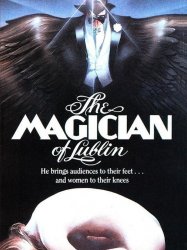
The Magician of Lublin (1979)
, 1h45Directed by Menahem Golan
Origin Israel
Genres Drama
Themes Films about magic and magicians, Films about religion, Films about Jews and Judaism
Actors Alan Arkin, Louise Fletcher, Shelley Winters, Valerie Perrine, Lou Jacobi, Zachi Noy
Yasha Mazur (Alan Arkin) is a turn-of-the-20th-century Jewish stage magician, womaniser, conman, and mystic. His great ambition is to figure out how to fly - an ambition he eventually achieves but not as a magic trick. He tours the western reaches of the old Russian Empire.
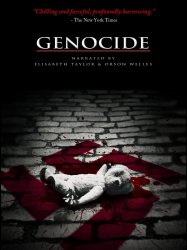
Genocide (1982)
, 1h30Origin USA
Genres Drama, War, Documentary, Historical
Themes Films about racism, Films about religion, Documentary films about racism, Documentary films about law, Documentary films about war, Documentary films about historical events, Documentaire sur une personnalité, Documentary films about religion, Political films, Films about Jews and Judaism, Documentary films about World War II
Actors Elizabeth Taylor, Orson Welles

The Big Pardon (1982)
, 2h10Directed by Alexandre Arcady
Origin France
Genres Drama, Comedy, Crime
Themes Mafia films, Films about religion, Films about Jews and Judaism, Gangster films
Actors Roger Hanin, Richard Berry, Bernard Giraudeau, Robert Hossein, Jean-Pierre Bacri, Gérard Darmon
Le film raconte l'histoire du clan Bettoun — avec à sa tête Raymond (le patriarche), Maurice (le fils), Jacky (le neveu), Roland (le neveu), Albert (le cousin de Raymond), Pépé (l'ami de Raymond) et Samy (le garde du corps) — un clan familial de la mafia juive pied-noire française qui évolue au sein du crime organisé. Le clan Bettoun a la mainmise sur la gestion de casinos, l'organisation de matchs de boxe et de jeux clandestins, le proxénétisme, le racket, et ne craint pas de maintenir son influence par des règlements de compte sanguinaires contre d'autres clans arabes et français.

Esther and the King (1960)
, 1h49Directed by Mario Bava, Raoul Walsh
Origin Italie
Genres Drama, Peplum
Themes Films about religion, Films based on the Bible, Films about Jews and Judaism, Children's films
Actors Joan Collins, Richard Egan, Denis O'Dea, Sergio Fantoni, Renato Baldini, Gabriele Tinti
The film is set in Persia in the 5th century BC. After the King’s wife is murdered, Esther (a Jewish woman) comes to the attention of the recently widowed King Ahasuerus. The king has been trying to stifle and defeat the campaign of hatred against the Jews by his evil minister Haman (Sergio Fantoni). Before the King can pair off with Esther and defeat the villainous Haman, there are several intervening adventures and an additional, attractive woman who competes for attention.
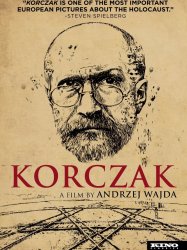
Korczak (1990)
, 1h55Directed by Andrzej Wajda
Origin Pologne
Genres Drama, War, Biography, Historical
Themes Films about religion, Political films, Films about Jews and Judaism
Actors Wojciech Pszoniak, Aleksander Bardini, Ewa Dałkowska, Anna Mucha, Agnieszka Krukówna, Teresa Budzisz-Krzyżanowska
Le film se passe pendant la Seconde Guerre mondiale, en 1942, dans le ghetto de Varsovie. Janusz Korczak a la charge de plusieurs centaines d'orphelins : il doit subvenir à leurs besoins dans des conditions très difficiles. On peut voir, par exemple, sur des photos d'époque prises dans ces orphelinats, que les enfants étaient pieds nus.

Kapo (1960)
, 1h52Directed by Giuliano Montaldo, Gillo Pontecorvo
Origin Italie
Genres Drama, War, Historical
Themes Films about religion, Political films, Films about Jews and Judaism
Actors Susan Strasberg, Didi Perego, Laurent Terzieff, Emmanuelle Riva, Gianni Garko, Paola Pitagora
Naive fourteen-year-old Edith (Susan Strasberg) and her Jewish parents are sent to a concentration camp, where the latter are killed. Sofia (Didi Perego), an older, political prisoner, and a kindly camp doctor save her from a similar fate by giving her a new, non-Jewish identity, that of the newly dead Nichole Niepas.
 Connection
Connection